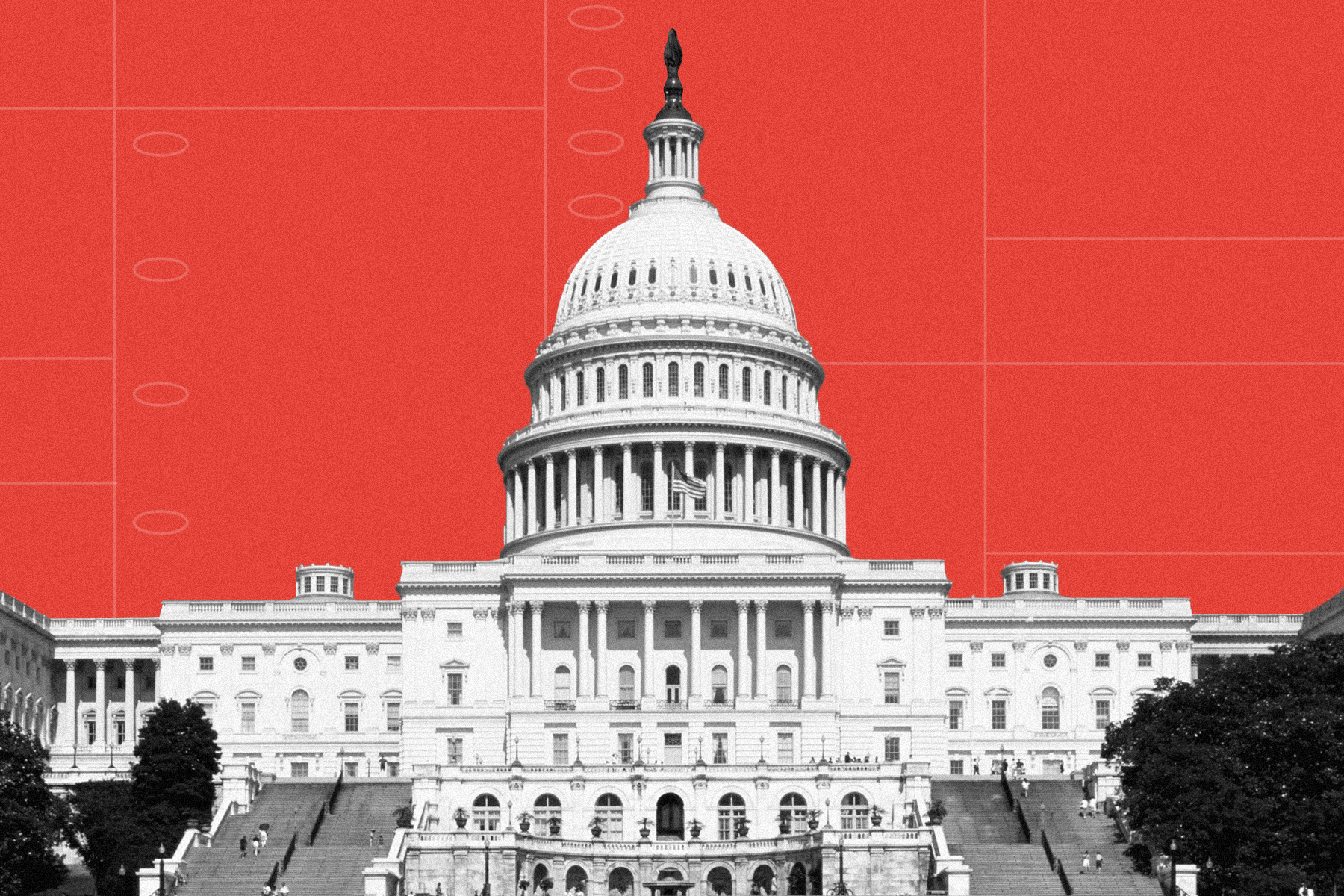Editor’s note: This article has been updated with new information throughout.
Democrats are projected to lose control of the Senate to Republicans, according to Decision Desk HQ .
Headed into Election Day, Democrats controlled the Senate by a single seat. Of the 34 seats up for reelection this year, 23 are held by Democrats and 11 by Republicans — but seven of the seats held by Democrats were competitive races versus only two of the seats held by Republicans. Plus, the retirement of Sen. Joe Manchin in deep red West Virginia meant that his seat went to outgoing Republican Gov. Jim Justice, making it tougher for Democrats to hold onto the upper chamber.
The 19th tracked six Senate races with women in them — in Arizona, Florida, Michigan, Nebraska, Nevada and Wisconsin — that are competitive to varying degrees. In Maryland and Delaware, Black women made history.
There are also six Senate races in which incumbent women were expected to cruise to reelection, though as of early Wednesday, not all had been called: Democrats Mazie Hirono of Hawaii, Elizabeth Warren of Massachusetts, Amy Klobuchar of Minnesota, Kirsten Gillibrand of New York and Maria Cantwell of Washington; and Republican Marsha Blackburn of Tennessee.
Sen. Jon Tester in Montana was considered the most endangered Democrat up for reelection this year and is projected to lose to Republican Tim Sheehy, a businessman and retired Navy SEAL. Democratic Sen. Sherrod Brown in Ohio is projected to lose to Republican Bernie Moreno, a car dealership owner. And Sen. Bob Casey in Pennsylvania is still trying to fend off Republican David McCormick, a former hedge fund executive.
Democratic Rep. Colin Allred mounted a surprisingly strong challenge to Sen. Ted Cruz in Texas but the incumbent Republican is projected to win.
Here are the competitive races we’re watching with women in them — all projected outcomes are from Decision Desk HQ.
Arizona
Democratic Rep. Ruben Gallego is facing off against Republican Kari Lake to fill the seat being left vacant by Sen. Kyrsten Sinema, who was elected as a Democrat but became a political independent last year. Gallego has represented Arizona in the House of Representatives since 2015, with a particular focus on veterans’ issues, and he has emphasized abortion rights during his campaign. Lake is a newscaster-turned-politician closely aligned with Donald Trump who lost the governor’s race in 2022 by fewer than 20,000 votes and never conceded. When Arizona’s other senator, Mark Kelly, was first elected in 2020 in a special election to fill the seat of Republican Sen. John McCain after his death, it marked the first time Arizona had two Democrats in the Senate since the 1950s.
Arizona currently has a 15-week abortion ban in place and is one of 10 states that have ballot initiatives this year related to protecting abortion rights, which could impact turnout. Arizona is also a presidential swing state.
Delaware
Rep. Lisa Blunt Rochester, who currently represents Delaware’s only U.S. House district, is projected to win her race against Republican Eric Hansen. She had the backing of President Joe Biden, who represented the state in the Senate for more than 35 years, and current Democratic Sen. Tom Carper, who announced his retirement last year and pointed to Blunt Rochester as a worthy successor.
Florida
Republican Sen. Rick Scott is projected to win reelection in his race against former Rep. Debbie Mucarsel-Powell, who linked immigration, abortion and freedom in her run. The longtime swing state has in recent cycles moved to the right. It too has a ballot measure to protect abortion that will have an unknown impact on candidate races.
Maryland
Democrat Angela Alsobrooks, the Prince George’s County executive, is projected to win in her race against Republican Larry Hogan, the state’s former Republican governor. Hogan was a popular governor during his term that ended last year, but Maryland is a blue state — and Alsobrooks also ran in part on Democrats holding Senate control.
Michigan
Democratic Rep. Elissa Slotkin is projected to win over Republican Mike Rogers, a former House member and a onetime Trump critic who was endorsed by him in his primary. Slotkin is a former CIA analyst, who served on the National Security Council under Republican President George W. Bush and in the State Department while Democrat Barack Obama was president. She’s part of a group of Democratic women who have figured out how to win in the swing state of Michigan.
Nebraska
Incumbent GOP Sen. Deb Fischer is projected to win her race against independent Dan Osborn, who ended up making the contest more competitive than expected.
Nevada
Democratic Sen. Jacky Rosen is betting on abortion rights to help her beat Republican Sam Brown. Rosen had a well-funded early start and enjoys greater name recognition than Brown, who has never held elected office and moved to the state six years ago. Brown, a former Army captain who was severely injured by an explosion while serving in Afghanistan, has argued Democrats like Rosen are to blame for increases in the cost of living and housing, and has said he supports securing the border and deporting “criminals.” Nevada is also a presidential battleground state.
Wisconsin
Democratic Sen. Tammy Baldwin is projected to win over Eric Hovde, a wealthy bank owner and real estate developer who has not held elected office before. Baldwin has regularly outperformed her party in this state where elections are often won and lost by the slimmest of margins. Baldwin is the first out LGBTQ+ woman — and the first woman from Wisconsin — elected to the House of Representatives and the Senate. Hovde’s campaign highlighted Baldwin’s sexuality.





